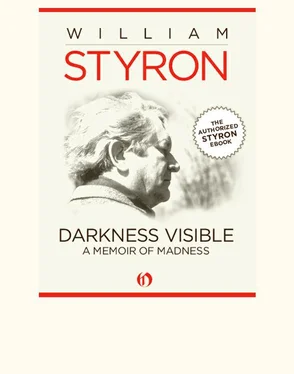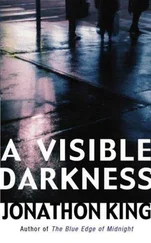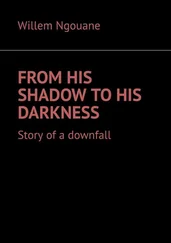William Styron - Darkness Visible
Здесь есть возможность читать онлайн «William Styron - Darkness Visible» весь текст электронной книги совершенно бесплатно (целиком полную версию без сокращений). В некоторых случаях можно слушать аудио, скачать через торрент в формате fb2 и присутствует краткое содержание. Город: New York, Год выпуска: 2010, ISBN: 2010, Издательство: Open Road Integrated Media, Жанр: Биографии и Мемуары, Психология, на английском языке. Описание произведения, (предисловие) а так же отзывы посетителей доступны на портале библиотеки ЛибКат.
- Название:Darkness Visible
- Автор:
- Издательство:Open Road Integrated Media
- Жанр:
- Год:2010
- Город:New York
- ISBN:978-1-936317-29-5
- Рейтинг книги:5 / 5. Голосов: 1
-
Избранное:Добавить в избранное
- Отзывы:
-
Ваша оценка:
- 100
- 1
- 2
- 3
- 4
- 5
Darkness Visible: краткое содержание, описание и аннотация
Предлагаем к чтению аннотацию, описание, краткое содержание или предисловие (зависит от того, что написал сам автор книги «Darkness Visible»). Если вы не нашли необходимую информацию о книге — напишите в комментариях, мы постараемся отыскать её.
Darkness Visible — читать онлайн бесплатно полную книгу (весь текст) целиком
Ниже представлен текст книги, разбитый по страницам. Система сохранения места последней прочитанной страницы, позволяет с удобством читать онлайн бесплатно книгу «Darkness Visible», без необходимости каждый раз заново искать на чём Вы остановились. Поставьте закладку, и сможете в любой момент перейти на страницу, на которой закончили чтение.
Интервал:
Закладка:
More or less the same can be said for Art Therapy, which is organized infantilism. Our class was run by a delirious young woman with a fixed, indefatigable smile, who was plainly trained at a school offering courses in Teaching Art to the Mentally Ill; not even a teacher of very young retarded children could have been compelled to bestow, without deliberate instruction, such orchestrated chuckles and coos. Unwinding long rolls of slippery mural paper, she would tell us to take our crayons and make drawings illustrative of themes that we ourselves had chosen. For example: My House. In humiliated rage I obeyed, drawing a square, with a door and four cross-eyed windows, a chimney on top issuing forth a curlicue of smoke. She showered me with praise, and as the weeks advanced and my health improved so did my sense of comedy. I began to dabble happily in colored modeling clay, sculpting at first a horrid little green skull with bared teeth, which our teacher pronounced a splendid replica of my depression. I then proceeded through intermediate stages of recuperation to a rosy and cherubic head with a “Have-a-Nice-Day” smile. Coinciding as it did with the time of my release, this creation truly overjoyed my instructress (whom I’d become fond of in spite of myself), since, as she told me, it was emblematic of my recovery and therefore but one more example of the triumph over disease by Art Therapy.
By this time it was early February, and although I was still shaky I knew I had emerged into light. I felt myself no longer a husk but a body with some of the body’s sweet juices stirring again. I had my first dream in many months, confused but to this day imperishable, with a flute in it somewhere, and a wild goose, and a dancing girl.
IX
BY FAR THE GREAT MAJORITY OF THE PEOPLE WHO go through even the severest depression survive it, and live ever afterward at least as happily as their unafflicted counterparts. Save for the awfulness of certain memories it leaves, acute depression inflicts few permanent wounds. There is a Sisyphean torment in the fact that a great number—as many as half—of those who are devastated once will be struck again; depression has the habit of recurrence. But most victims live through even these relapses, often coping better because they have become psychologically tuned by past experience to deal with the ogre. It is of great importance that those who are suffering a siege, perhaps for the first time, be told—be convinced, rather—that the illness will run its course and that they will pull through. A tough job, this; calling “Chin up!” from the safety of the shore to a drowning person is tantamount to insult, but it has been shown over and over again that if the encouragement is dogged enough—and the support equally committed and passionate—the endangered one can nearly always be saved. Most people in the grip of depression at its ghastliest are, for whatever reason, in a state of unrealistic hopelessness, torn by exaggerated ills and fatal threats that bear no resemblance to actuality. It may require on the part of friends, lovers, family, admirers, an almost religious devotion to persuade the sufferers of life’s worth, which is so often in conflict with a sense of their own worthlessness, but such devotion has prevented countless suicides.
During the same summer of my decline, a close friend of mine—a celebrated newspaper columnist—was hospitalized for severe manic depression. By the time I had commenced my autumnal plunge my friend had recovered (largely due to lithium but also to psychotherapy in the aftermath), and we were in touch by telephone nearly every day. His support was untiring and priceless. It was he who kept admonishing me that suicide was “unacceptable” (he had been intensely suicidal), and it was also he who made the prospect of going to the hospital less fearsomely intimidating. I still look back on his concern with immense gratitude. The help he gave me, he later said, had been a continuing therapy for him, thus demonstrating that, if nothing else, the disease engenders lasting fellowship.
After I began to recover in the hospital it occurred to me to wonder—for the first time with any really serious concern—why I had been visited by such a calamity. The psychiatric literature on depression is enormous, with theory after theory concerning the disease’s etiology proliferating as richly as theories about the death of the dinosaurs or the origin of black holes. The very number of hypotheses is testimony to the malady’s all but impenetrable mystery. As for that initial triggering mechanism—what I have called the manifest crisis—can I really be satisfied with the idea that abrupt withdrawal from alcohol started the plunge downward? What about other possibilities—the dour fact, for instance, that at about the same time I was smitten I turned sixty, that hulking milestone of mortality? Or could it be that a vague dissatisfaction with the way in which my work was going—the onset of inertia which has possessed me time and time again during my writing life, and made me crabbed and discontented—had also haunted me more fiercely during that period than ever, somehow magnifying the difficulty with alcohol? Unresolvable questions, perhaps.
These matters in any case interest me less than the search for earlier origins of the disease. What are the forgotten or buried events that suggest an ultimate explanation for the evolution of depression and its later flowering into madness? Until the onslaught of my own illness and its denouement, I never gave much thought to my work in terms of its connection with the subconscious—an area of investigation belonging to literary detectives. But after I had returned to health and was able to reflect on the past in the light of my ordeal, I began to see clearly how depression had clung close to the outer edges of my life for many years. Suicide has been a persistent theme in my books—three of my major characters killed themselves. In rereading, for the first time in years, sequences from my novels—passages where my heroines have lurched down pathways toward doom—I was stunned to perceive how accurately I had created the landscape of depression in the minds of these young women, describing with what could only be instinct, out of a subconscious already roiled by disturbances of mood, the psychic imbalance that led them to destruction. Thus depression, when it finally came to me, was in fact no stranger, not even a visitor totally unannounced; it had been tapping at my door for decades.
The morbid condition proceeded, I have come to believe, from my beginning years—from my father, who battled the gorgon for much of his lifetime, and had been hospitalized in my boyhood after a despondent spiraling downward that in retrospect I saw greatly resembled mine. The genetic roots of depression seem now to be beyond controversy. But I’m persuaded that an even more significant factor was the death of my mother when I was thirteen; this disorder and early sorrow—the death or disappearance of a parent, especially a mother, before or during puberty—appears repeatedly in the literature on depression as a trauma sometimes likely to create nearly irreparable emotional havoc. The danger is especially apparent if the young person is affected by what has been termed “incomplete mourning”—has, in effect, been unable to achieve the catharsis of grief, and so carries within himself through later years an insufferable burden of which rage and guilt, and not only dammed-up sorrow, are a part, and become the potential seeds of self-destruction.
In an illuminating new book on suicide, Self-Destruction in the Promised Land, Howard I. Kushner, who is not a psychiatrist but a social historian, argues persuasively in favor of this theory of incomplete mourning and uses Abraham Lincoln as an example. While Lincoln’s hectic moods of melancholy are legend, it is much less well known that in his youth he was often in a suicidal turmoil and came close more than once to making an attempt on his own life. The behavior seems directly linked to the death of Lincoln’s mother, Nancy Hanks, when he was nine, and to unexpressed grief exacerbated by his sister’s death ten years later. Drawing insights from the chronicle of Lincoln’s painful success in avoiding suicide, Kushner makes a convincing case not only for the idea of early loss precipitating self-destructive conduct, but also, auspiciously, for that same behavior becoming a strategy through which the person involved comes to grips with his guilt and rage, and triumphs over self-willed death. Such reconciliation may be entwined with the quest for immortality—in Lincoln’s case, no less than that of a writer of fiction, to vanquish death through work honored by posterity.
Читать дальшеИнтервал:
Закладка:
Похожие книги на «Darkness Visible»
Представляем Вашему вниманию похожие книги на «Darkness Visible» списком для выбора. Мы отобрали схожую по названию и смыслу литературу в надежде предоставить читателям больше вариантов отыскать новые, интересные, ещё непрочитанные произведения.
Обсуждение, отзывы о книге «Darkness Visible» и просто собственные мнения читателей. Оставьте ваши комментарии, напишите, что Вы думаете о произведении, его смысле или главных героях. Укажите что конкретно понравилось, а что нет, и почему Вы так считаете.












